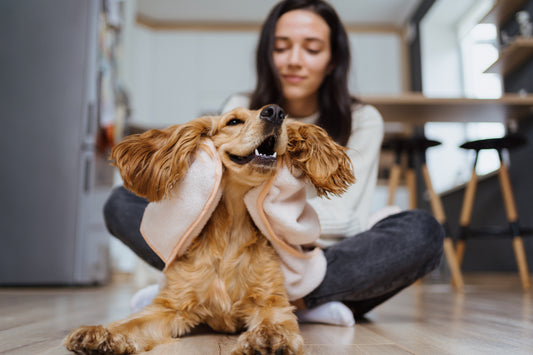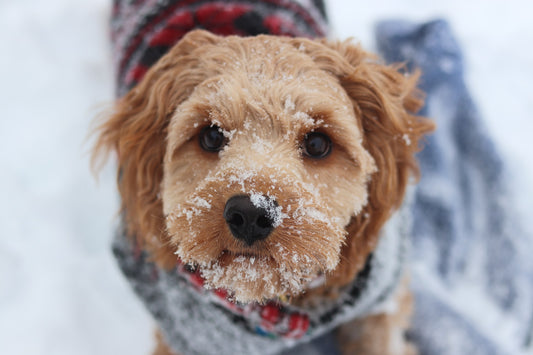Urinary incontinence can be a huge issue for pet owners, sometimes resulting in euthanasia when pet owners are disgusted by dogs leaving puddles of urine around the house. Urinary incontinence can be seen at any age, depending on the cause.
Common causes of urinary incontinence can include: low estrogen levels (may be associated with early spay), weak urethral sphincter (the muscle that closes to stop urinary outflow), spinal cord disease, metabolic diseases causing increased water consumption (diabetes, hypothyroidism, cancer, autoimmune disease, kidney failure), drugs (steroids, some antibiotics), urinary tract infection, bladder stones, enlarged prostate, birth defects (ectopic ureter, persistent urachal diverticulum), and others. Obviously, with so many causes, diagnosis is the key to treatment.
Symptoms may include: foul odor from urine saturation of hindquarters, urine scalding of skin and secondary skin infection, urine saturation of hair around the urethral openings, and puddles left where dogs lie down.
Diagnostic tests that should be performed may include urinalysis, urine culture and sensitivity, bladder and kidney x-ray +/- bladder and kidney ultrasound, blood serum chemistry, rectal exam (males), and possibly dye studies for dogs with suspected birth defects. Once a diagnosis has confirmed the source of the problem, proper treatment can be initiated.
From a TCVM (Chinese Medicine) perspective, urine leakage can be associated with Bladder Damp Heat (infection or stones), Kidney Qi Deficiency (kidney failure and leakage), or Kidney Yang Deficiency (old, cold dogs). Acupuncture, including moxa therapy (heat therapy) and electro-acupuncture, can be very helpful for these dogs, along with herbal therapies. There are multiple herbal formulas available for old dog urinary leakage, with some of the more common remedies including Suo Quan Wan, Hindquarter Weakness, Si Maio San, Bu Yang Yuan Wan, and Wu Bi Shan Yao Wan. Consultation with a TCVM holistic practitioner can help determine which formula would be most beneficial. Homeopathic products may also be helpful.
Food therapy that may help old, cold dogs (Kidney Yang and Qi Deficiency) include Qi tonics like beef, chicken, lamb, oats, glutinous rice, brown rice, pumpkin, sweet potato, figs, and Shiitake mushrooms. Yang tonics to warm the dog include venison, lamb, kidney, dried ginger and cinnamon, garlic, dill seed, fennel seed, basil, and thyme.
Proin, or phenylpropanolamine, is commonly used to increase urethral sphincter tone. This drug can cause extreme elevations in blood pressure and should not be used in pets with any heart disease, high blood pressure, kidney disease, or glaucoma. Blood pressure should be monitored frequently if this drug is used. Estrogen hormone replacement therapy is also commonly used. Estrogen can be very beneficial in low doses, but side effects can include bone marrow red blood cell suppression, leading to a fatal anemia. Red blood cell counts should be monitored closely in pets that receive estrogen therapy.
Cold laser therapy, acupuncture, chiropractic care, and herbal formulas can be used effectively for pets with spinal disorders contributing to urinary incontinence.
The most important treatment the pet owner can offer for dogs with urinary incontinence is vigilance and cleanliness. If the pet continues to leak urine once all diagnostics have been performed and therapy instituted, it is imperative to keep the pet clean and odor free. Diapers can be a huge help, but daily bathing and inspection for infection and urine scalding must be performed. Every summer we see multiple cases of pets infested with maggots secondary to urine incontinence.


